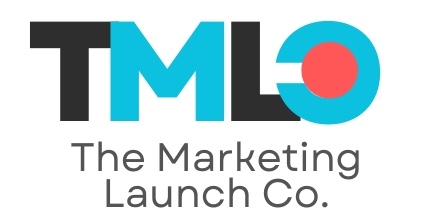When choosing a web platform for your small business, it’s essential to consider various options. Here’s a comparison of some popular choices, including Wix, Squarespace, Shopify, WordPress, IONOS and GoDaddy.
Wix: Versatility and Ease of Use
Wix stands out as a popular choice for small businesses due to its user-friendly interface, flexibility and comprehensive features. With over 800 customisable templates and an intuitive drag-and-drop editor, Wix makes it easy for beginners to create professional-looking websites.
Key Features:
- Drag-and-drop editor which makes its easy to create and update
- AI-powered website design builder for quick setup
- Extensive app marketplace for added functionality
- Over 800 customisable templates
- Strong e-commerce capabilities
- Built-in tools for SEO, online bookings, and customer relationship management
- Step-by-step wizards for SEO and Google connections
Wix offers a limited free plan, but most businesses will benefit from paid plans to ensure you have a domain that reflects your business name. Prices start at £11 per month (billed annually).
Shopify: E-commerce Powerhouse
For small businesses focused on selling products online, Shopify is an excellent platform choice. It provides robust e-commerce functionality and scalability for growing businesses.
Standout Capabilities:
- Advanced inventory management
- Extensive payment gateway integrations
- Built-in analytics and reporting tools
- Customisable checkout pages
- Native point-of-sale (POS) systems
- Multichannel selling options, including social media platforms
Shopify’s paid plans range from £25 to £239 per month, with a 14-day free trial available.
Squarespace: Design-Focused Solution
Squarespace is known for its stunningly designed templates, making it ideal for businesses that prioritise visual appeal.
Notable Features:
- Elegant and responsive designs
- Built-in SEO and marketing tools
- Integrated e-commerce functionality
While Squarespace doesn’t offer a free plan, its paid options start at £12 per month (billed annually).
WordPress: Flexibility and SEO Strength
WordPress.com, the hosted version of the popular content management system, offers a balance of customisation and ease of use. It’s particularly well-regarded for its SEO capabilities.
Advantages:
- Extensive plugin ecosystem
- Powerful blogging features
- Strong SEO performance
WordPress.com offers both free and paid plans, with business-oriented options starting around £20 per month.
IONOS: Affordable and Feature-Rich
IONOS offers a comprehensive solution for small businesses, with a focus on affordability and functionality.
Key Features:
- AI-powered website builder for quick setup
- Free domain for the first year
- Offers competitor tracking with marketingRadar and an AI Image Generator
- Built-in SEO and marketing tools
- Multilingual translation options
IONOS plans start from as low as £1 per month for the first year, making it one of the most budget-friendly options
GoDaddy: User-Friendly and Quick
GoDaddy is known for its straightforward approach and rapid website creation process.
Standout Capabilities:
- Intuitive drag-and-drop editor
- Wide range of industry-specific templates
- Integrated email marketing, google reviews and social media tools
- 24/7 customer support
GoDaddy’s website builder plans begin at £6.99 per month when billed annually.
Choosing the Right Platform
When selecting a web platform for your small business, consider the following factors:
- Ease of use: If you’re not particularly tech-savvy, prioritise platforms with intuitive, user-friendly interfaces like Wix, GoDaddy or Squarespace.
- Design flexibility: Determine how much control you want over your site’s appearance. WordPress & Squarespace provides the most design freedom, while IONOS & Wix offers professional templates with an AI builders.
- E-commerce needs: For online stores, Shopify excels in this area, but IONOS and Wix also offer solid e-commerce features.
- SEO and marketing: IONOS provides strong SEO tools, including an AI SEO Text Generator. Wix & Squarespace have step-by-step wizards to connect and set your SEO up. WordPress has the most options and flexibility to develop a strong SEO strategy.
- Budget: Consider both upfront costs and long-term expenses. Most offer more affordable options, while Shopify is pricier but specialised for e-commerce.
- Scalability: Choose a platform that can grow with your business. Platforms like WordPress, Shopify or Wix are best.
By carefully evaluating these platforms and their features, you can select the web builder that best aligns with your small business goals and requirements. Remember to take advantage of free trials when available to test the platforms firsthand before making a final decision.


